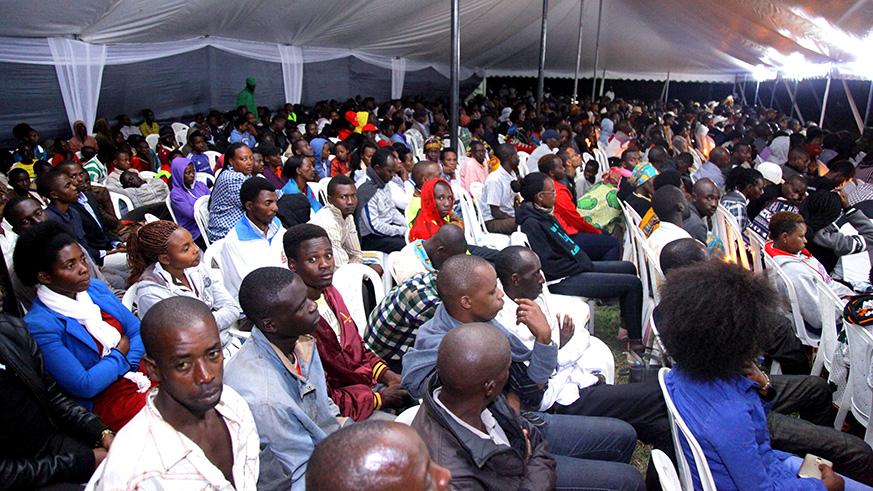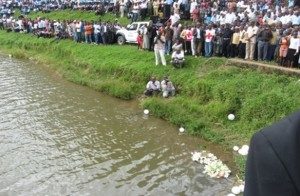
Kelly Rwamapera, The New Times
Parents work hard to have their younger children realise that which themselves were not able to achieve. Children, in the same manner, struggle to live the visions of their parents and pass them over to another generation.
This is the gist of regeneration of humankind, and in a subtle but significant way, from which nations fetch the common visions of a people.
For the tenth time the umbrella of the former student Genocide survivors (GAERG) commemorated the 42,647 people from 9,706 families completely wiped out during the 1994 Genocide against the Tutsi, so far counted in the country’s 19 of the 30 districts.
During research to establish families that were completely wiped out during the Genocide against the Tutsi, researchers look at nuclear families – father, mother and children – that were killed in their entirety.
The commemoration was held on the night of May 19, 2018 at Nyarubuye Genocide memorial in Kirehe District, Eastern Province where remains of over 50,000 Tutsi are laid interred. Most victims are from Kirehe and neighbouring Ngoma District.
While Genocide survivors are rebuilding their families and the country at large, mourners regretted that the love, hopes, faces and individual contribution to national development of wiped-out families perished with them.
The Eastern Province Governor, Fred Mufulukye, noted that, in wiped-out families, the country was deprived forever of the role these families would have played in society.
“Today, the country has been remade but, unfortunately, the contribution of the wiped-out families isn’t with us and they can never enjoy the country we’re enjoying,” he said.
Mufulukye called upon residents of Nyarubuye to recommit to national values and desist from genocide ideology.
“The masterminds of the 1994 Genocide against the Tutsi turned their backs on our country and instead concentrated on massacring people,” he noted.
Dr Damascene Bizimana, the CNLG executive secretary, gave examples of early genocide orchestrators whose aim was to wipe out Tutsi in a very short time.
“The government of Gregoire Kayibanda was founded on genocide ideology and they did anything possible to present Tutsi as a problem to the nation.”
He recited several “cheap speeches and writings of the notorious Joseph Gitera and Kayibanda himself”, which incited ethnicity and ethnic cleansing.
Afred Nkubili is a Genocide survivor of Nyarubuye and knows several wiped out families in the area.
He and Prof Egide Karuranga, the Vice Chancellor University of Kibungo (UNIK), noted the ill ideas that were used to incite people in Nyarubuye to hate Tutsi and seek to wipe them out.
“They (the elites of then) spread a rumour that Tutsi were foreigners who attacked the country and imposed themselves on it,” said Prof Karuranga.
Although people such as Nkubili have “over 20 grandparents that were born and died in Nyarubuye, dating to about a thousand years ago,” the colonial theory of ethnicity in Rwanda spread like a bush fire, he said.
GAERG has so far found that 704 families composed of 2915 people were completely wiped out in 14 sectors of Ngoma District and 245 families composed of 1,044 people in Kirehe District, according to the association’s president Olivier Mazimpaka.
Mazimpaka called upon Rwandans to assist GAERG to get details of completely wiped out families, a task the association began in 2009, to ensure all of them are known so that they can be commemorated.

